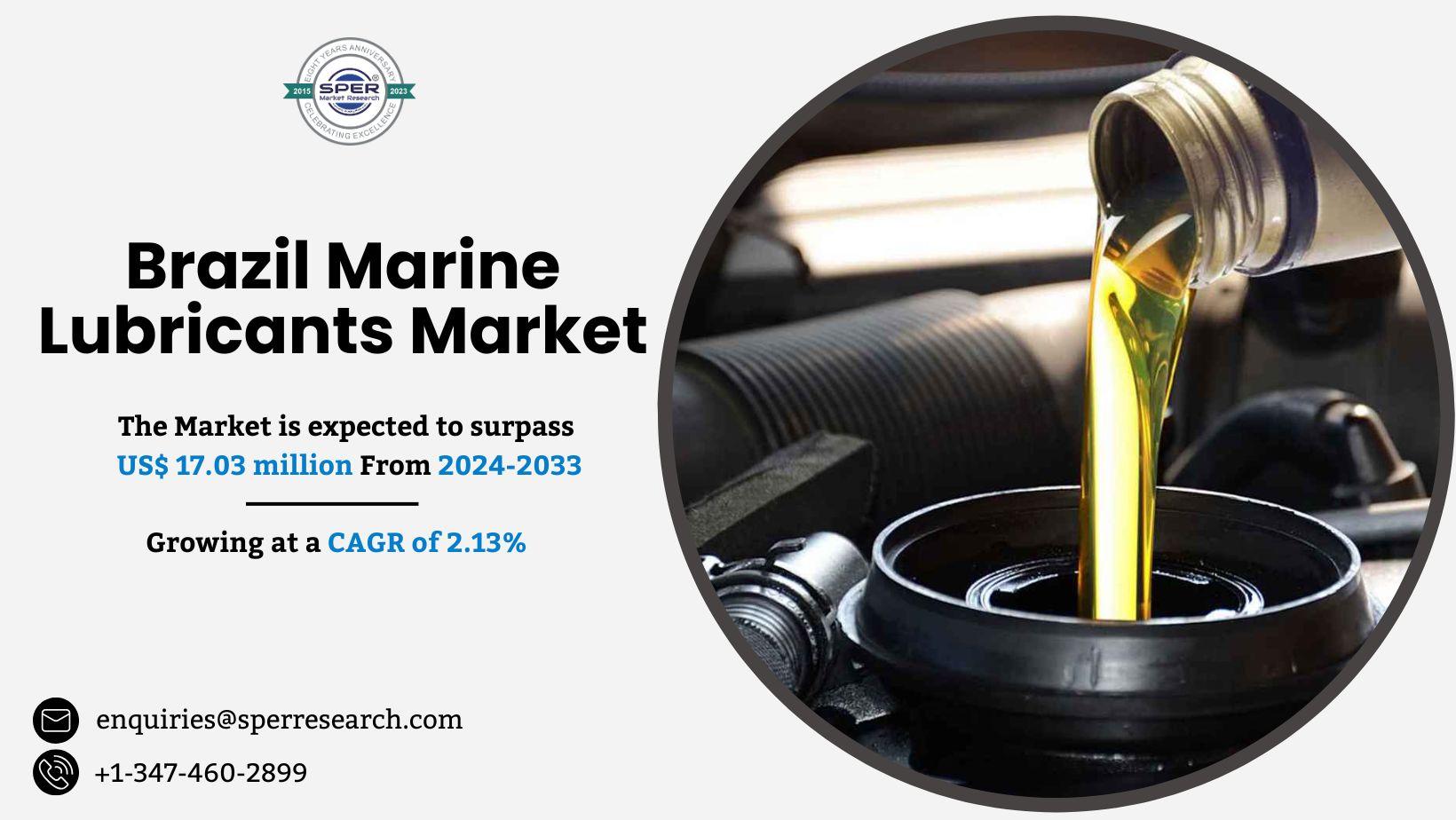Marine lubricants are specialized oils and greases designed to reduce friction, wear, and corrosion in the engines and machinery of ships and marine vessels. They play a crucial role in ensuring smooth operation and longevity of marine equipment exposed to harsh conditions such as saltwater, high pressure, and extreme temperatures. With the growth of global shipping and stricter environmental regulations, the demand for high-performance, eco-friendly marine lubricants has increased significantly. These lubricants help improve fuel efficiency, reduce emissions, and protect engines, making them essential for maintaining reliable and cost-effective maritime operations.
According to SPER Market Research, ‘Brazil Marine Lubricant Market Size- By Product, By Ship Type, By Distribution Channel- Regional Outlook, Competitive Strategies and Segment Forecast to 2033’ the Brazil Marine Lubricant Market is estimated to reach USD 17.03 million by 2033 with a CAGR of 2.13%.
Drivers:
The marine lubricant market is driven by the growth in global maritime trade and the expansion of shipping fleets worldwide. Increasing demand for fuel-efficient and eco-friendly lubricants, in line with stricter environmental regulations, encourages the adoption of advanced lubricants that enhance engine performance and reduce emissions. Rising investments in new shipbuilding and maintenance activities also boost the demand for high-quality marine lubricants. Furthermore, the growing focus on reducing operational costs by improving engine longevity and minimizing downtime pushes shipping companies to use specialized lubricants designed for harsh marine environments. Technological advancements in lubricant formulations to meet the needs of modern, complex marine engines further propel market growth.
Brazil Marine Lubricants Market Sample in PDF Format, Click Here
Restraints:
The marine lubricant market faces challenges such as the high cost of advanced lubricants, which can limit adoption, especially among small and mid-sized shipping companies. Stringent environmental regulations require frequent reformulation and testing of products, increasing compliance costs and complexity for manufacturers. Fluctuations in crude oil prices can impact raw material costs, leading to price volatility in the lubricant market. Additionally, improper disposal and environmental concerns regarding lubricant waste pose significant issues. The slow replacement cycle of existing fleets and reluctance to switch from conventional lubricants to newer formulations also restrain rapid market expansion. These factors collectively slow down the overall growth of the marine lubricant sector.
Port of Santos leads Brazil’s marine lubricant market due to its status as the largest and busiest port handling most of the country’s maritime cargo. Some key players are- Chevron Marine Lubricants, Cockett Group, ExxonMobil, Idemitsu Kosan Co Ltd., Royal Dutch Shell, Repsol, TOTAL Brasil, UniMarine.
For More Information, refer to below link: –
Brazil Marine Lubricants Market Growth
Related Reports:
Global Prestressed Concrete Wire and Strand Market Growth
Follow Us –
LinkedIn | Instagram | Facebook | Twitter
Contact Us:
Sara Lopes, Business Consultant — USA
SPER Market Research
enquiries@sperresearch.com
+1–347–460–2899



